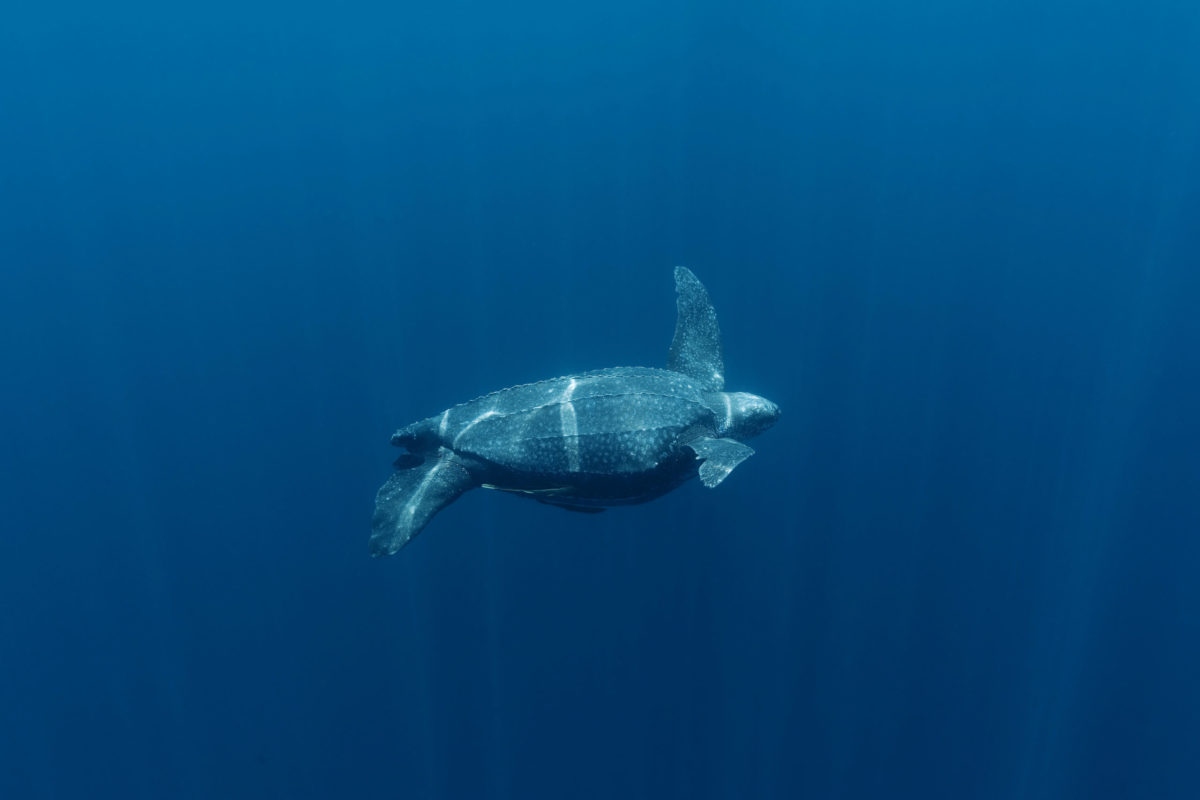Nature’s heroes: Lyudmyla, sea turtle defender

Though conservation victories are hard won, protecting our planet comes naturally to our donors. To say thank you to nature’s heroes, we’re dedicating a week to telling their stories. And who doesn’t like a good hero story?
“I’ve always had a soft spot for elephants for some reason, explains Lyudmyla Bogucharska, monthly donor and 20-year volunteer. “When I see a picture of an elephant, I can’t help but reach into my pocket.”
But she’s also amazed by sea turtles and macaws.
During a hiking trip to Costa Rica, Lyudmyla came across a sea turtle rescue organization and volunteered, patrolling the beach for hours each day. She would look out for injured turtles, protect eggs from poachers and help release baby sea turtles that hatched on the shore get into the sea. She was also affected by other sights in in Costa Rica: the lightning that seemed to spark in all directions and the “big flocks of beautiful macaws jetting over the forests in pairs.”
The peacefulness of it all made her realize even more that “we aren’t doing enough to keep habitats safe from human activities.”

No matter where in the world Lyudmyla is, her passion for protecting it is something she brings with her.
Shortly after moving to Canada from Ukraine in 2001, she started volunteering at WWF-Canada’s Toronto office. “It was a way to get involved, and also to learn the language,” says Lyudmyla. After getting to know the people and mission behind the panda, she became a monthly donor and has continued giving ever since, for which we are so grateful.
Perhaps some of the sea turtle hatchlings Lyudmyla rescued in Costa Rica have even followed her back to Canadian waters. Our oceans are important seasonal habitat for four species of sea turtles, including endangered leatherback and loggerhead turtles that migrate here from their Central and South American nesting grounds to feast on Canadian jellyfish. Sadly, these ancient mariners are incredibly susceptible to human and environmental threats like climate change, plastic pollution (they mistake plastic bags for jellyfish) and entanglement in fishing gear.

With nature’s heroes like Lyudmyla by our side, WWF-Canada is working hard to make our oceans safer and healthier for sea turtles and all marine life. This means advocating for high-quality marine protected areas where ocean species can take refuge, leading shoreline cleanups and taking on ghost gear (abandoned, lost or discarded fishing gear that continues to catch and kill wildlife long after people are done with it).
In the world of conservation, victories aren’t always swift but rather the culmination of years of work and everyday acts of caring, like defending turtle eggs or donating to elephants. Our monthly donors make finding those long-term solutions to some of nature’s biggest challenges possible through their unwavering and dependable support.
Feeling inspired? Symbolically adopt a sea turtle!

